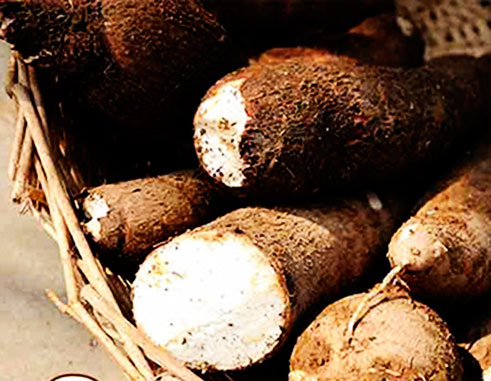Hands-on training seeks to help country strengthen crop productivity and competitiveness
PRESS RELEASE – THIS week,, 15 agricultural technical officers from across Suriname will participate in a practical training organized by the Food and Agriculture Organization of the United Nations (FAO) that seeks to strengthen cassava production across the country through in-vitro multiplication, as well as other genetic and phytosanitary techniques.
The week-long workshop is taking place between the 26 and 30 November, 2018 at Grassalco Tissue Culture Lab, Commewijne, Suriname. Participants will include representatives from the Ministry of Agriculture, Animal Husbandry and Fisheries, Anton de Kom University, Grassalco and CELOS. The training will be hosted in collaboration with the Clayuca Corporation of Colombia.
The training is being held under the FAO – Caribbean Development Bank (CDB) project “Cassava Industry – Market Assessment and Technology Validation and Dissemination”, from grant funding provided by the CDB. FAO is implementing the project in three countries – Dominica, Suriname and Trinidad and Tobago.
To advance the modernization of cassava value chains in Dominica, Suriname and Trinidad and Tobago, FAO recently partnered with the Clayuca Corporation (Colombia) through the project to provide practical training for technical national-level agriculture staff in the three countries. The training will focus on building their capacity in in-vitro processes for cassava plantlets in a specialized tissue culture lab.
As the Caribbean seeks to reduce its annual US$4 billion food import bill, Caribbean Community (CARICOM) countries, including Suriname, have prioritized the local cassava industry development as a strategic option for reducing consumer reliance on foreign crops such as wheat, maize and rice. In this context, FAO is working with Suriname to promote a stronger cassava industry that can support economic growth, as well as rural development and food security.
“The benefits of cassava for strengthening agriculture and food security in the Caribbean include ease of local production and consumption as well as increased nutritional value. The crop provides vitamin and mineral content comparable to wheat, and can be processed into starch and starch-based products as well as livestock feed. Farmers can also use it to feed their families, obtain income and employment and escape poverty,” said VermaranExtavour, Regional Project Coordinator – Agroprocessing and Value Chain Development at FAO’s Subregional Office for the Caribbean.
One key strategy for sustainable intensification of cassava production is through the creation of a crop value chain. By taking this approach, the sector can implement state-of-the-art techniques such as introducing new and improved genetic resources, eco-efficient field and crop management, and postharvest technologies.
“Building capacity in this integrated approach at the national level offers many advantages. Farmers can have improved access to better varieties, with high yielding potential and good adaptation to specific agro-climatic conditions. The project is simultaneously using the farmer field school (FFS) method to introduce eco-efficient soil and crop management technologies. This means that farmers can increase their yields using those inputs that are necessary and affordable to effectively increase the competitiveness and enhance and maintain the sustainability of their farms,” said Vyjayanthi Lopez, Plant Production and Protection Officer at the FAO Subregional Office for the Caribbean.
A similar capacity building cassava production training was hosted by FAO and Clayuca in Trinidad between October 29 to November 2, 2018 through the project. Participants included agricultural technical officers from Dominica, as well as Trinidad and Tobago. (FAO)





![Simón Bolívar - Liberator of the Americas [Photo credit: Venezuelan Embassy]](https://thevoiceslu.com/wp-content/uploads/2025/12/Simon-Bolivar-feat-2-380x250.jpg)



